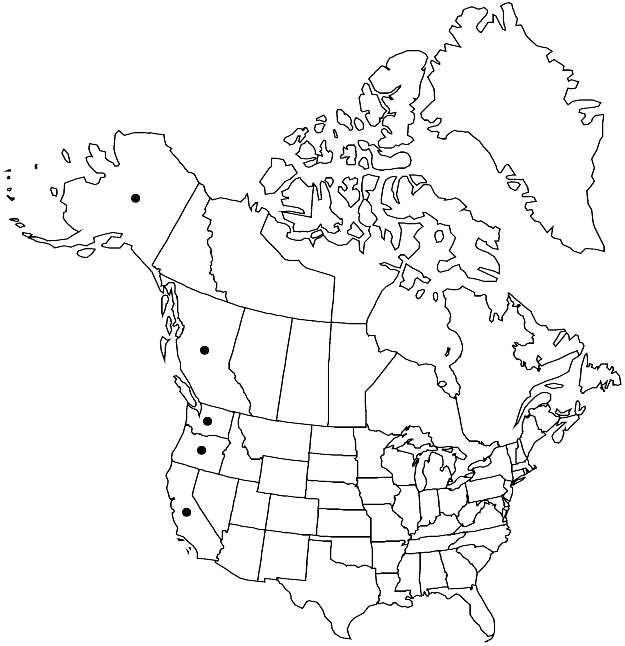Ulota obtusiuscula
in J. Macoun and N. C. Kindberg, Cat. Canad. Pl., Musci, 82. 1892.
Plants 1–4 cm. Stems erect. Stem leaves contorted-crisped, some tightly twisted when dry, linear to linear-lanceolate, 1.8–4 mm; base ovate; margins reflexed; apex acute; basal laminal cells elongate, grading to quadrate at margin, pale yellow, walls thick; distal cells 7–13 µm, papillae conic, sometimes large. Specialized asexual reproduction absent. Sexual condition autoicous; perichaetial leaves not differentiated from stem leaves. Seta 2–7(–10) mm. Capsule oblong to oblong-conic, 1.2–2.5 mm, 8-ribbed to 1/2–3/4 length, mouth wide, evenly tapering from mouth to seta; stomata in neck; peristome double; exostome teeth reflexed to recurved, densely and finely papillose; endostome segments 8, finely reticulate. Calyptra conic, very hairy. Spores 24–32 µm.
Habitat: Epiphytic in temperate rainforests
Elevation: low elevations
Distribution

B.C., Alaska, Calif., Oreg., Wash.
Discussion
Ulota obtusiuscula has conspicuously twisted and contorted leaves, even when wet. The long capsules, which are not much contracted below the mouth and peristome, remain erect for much of their maturity. The plants are larger than those of U. crispa. Ulota obtusiuscula is distributed from northern California north to southern Alaska, occurring inland in western Washington and disjunct in southeastern British Columbia, whereas U. crispa is confined in North America to the eastern half of the continent, and reports of it from the west are mostly young plants of U. obtusiuscula. On the West Coast, no other species of Ulota has such strongly twisted leaves and forms cushions.
Selected References
None.